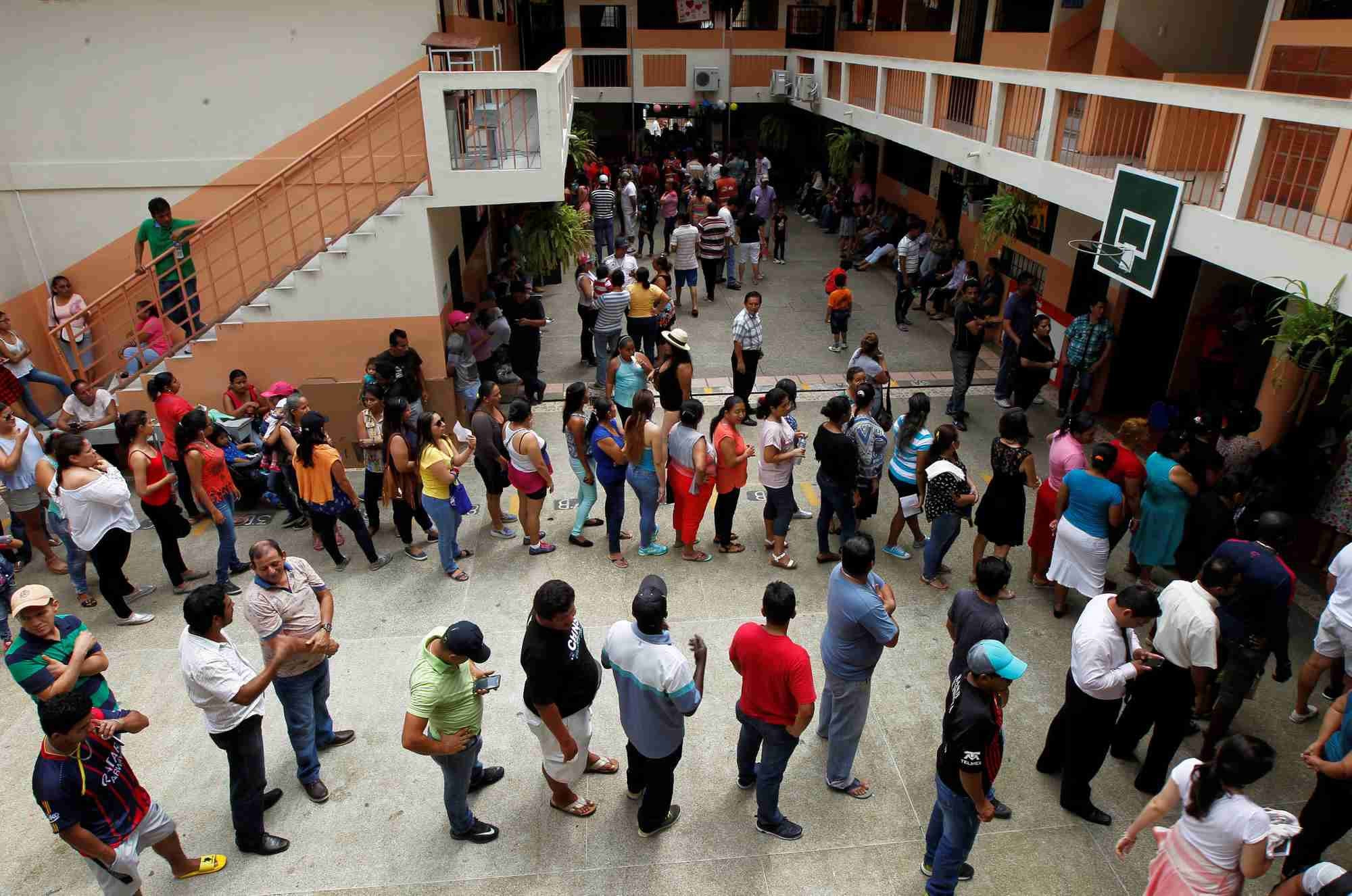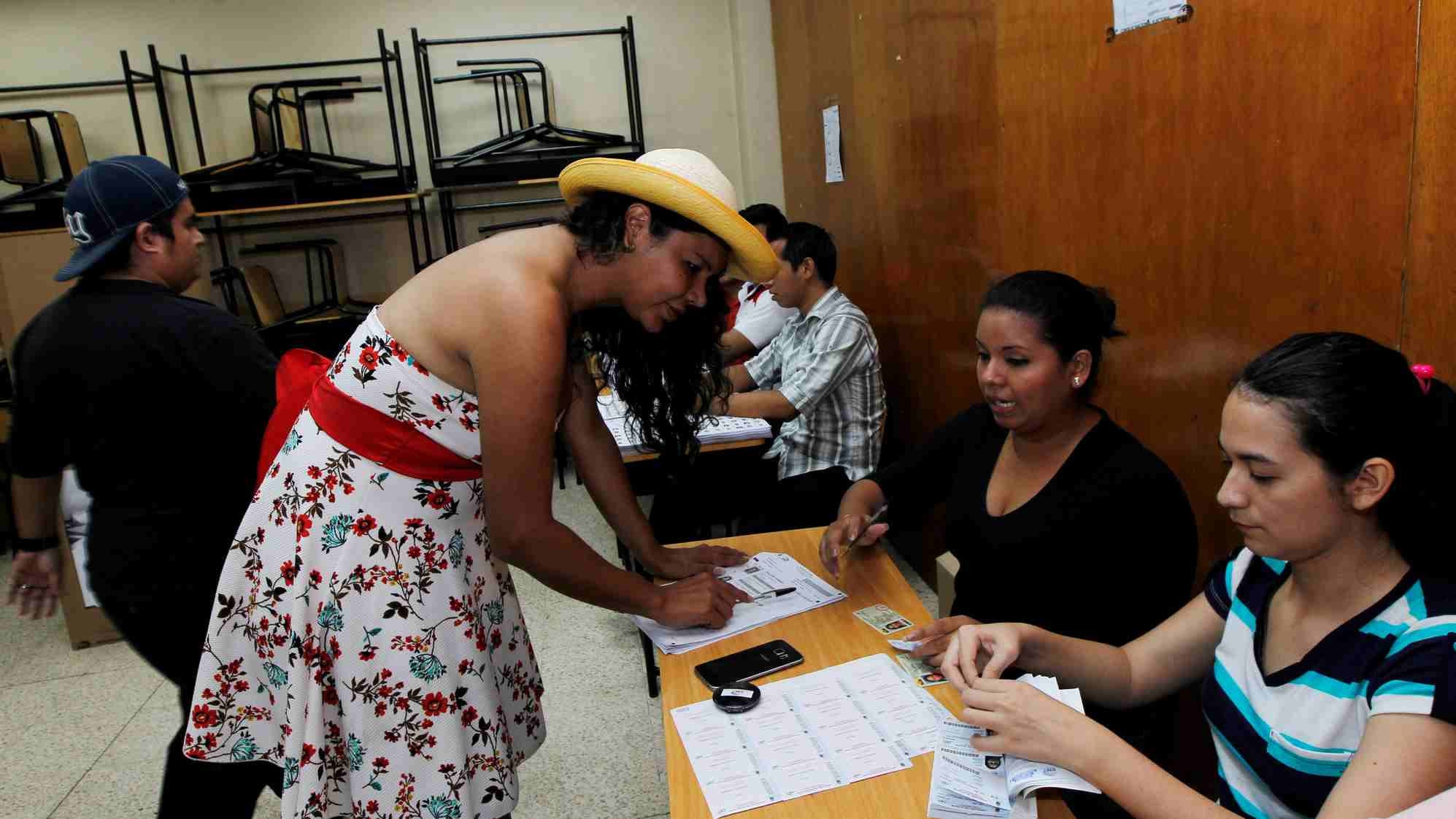Ecuadorean exit polls put ruling party leftist Lenin Moreno clearly ahead in Sunday's presidential election, although it was unclear whether he had enough votes to avoid an April runoff against conservative ex-banker Guillermo Lasso.
Moreno, a disabled former vice president, needs 40 percent of valid votes and a 10-percentage-point difference with his nearest rival to win outright and extend a decade of left-wing rule in the Andean country.
An exit poll by Cedatos pollster estimated Moreno received some 39.4 percent of valid votes versus around 30.5 percent for Lasso. Its margin of error was plus or minus 2 percentage points.

People stand in line while waiting to cast their votes during the presidential election in Ecuador. /CFP Photo
A separate OPECUADOR poll published by state media showed Moreno with 42.9 percent of valid votes, versus 27.7 percent for Lasso.
Moreno, who lost the use of his legs two decades ago after being shot during a robbery, has a more conciliatory style than fiery outgoing President Rafael Correa and has promised benefits for the disabled, single mothers and the elderly.
Correa, one of the key figures in Latin America's leftist axis for years, has brought stability to the politically turbulent country but has aggravated many with his confrontational style. He plans to move to Belgium with his Belgian wife after leaving office.
Lasso has campaigned on a platform to revive the economy, which is dependent on exports of oil, flowers and shrimp, by slashing taxes, fostering foreign investment and creating 1 million jobs in four years.

Diane Rodriguez, a member of the Ecuadorean transgender community, registers before casting her vote during the presidential election. /CFP Photo
Should there be a second round, Ecuador's fragmented opposition is expected to coalesce around Lasso amid anger over an economic downturn and corruption scandals.
Argentina, Brazil, and Peru have moved towards the right recently as a commodities boom ended and weakened a leftist bloc in the region rich in oil, metals, and soy.
(Source: Reuters)









